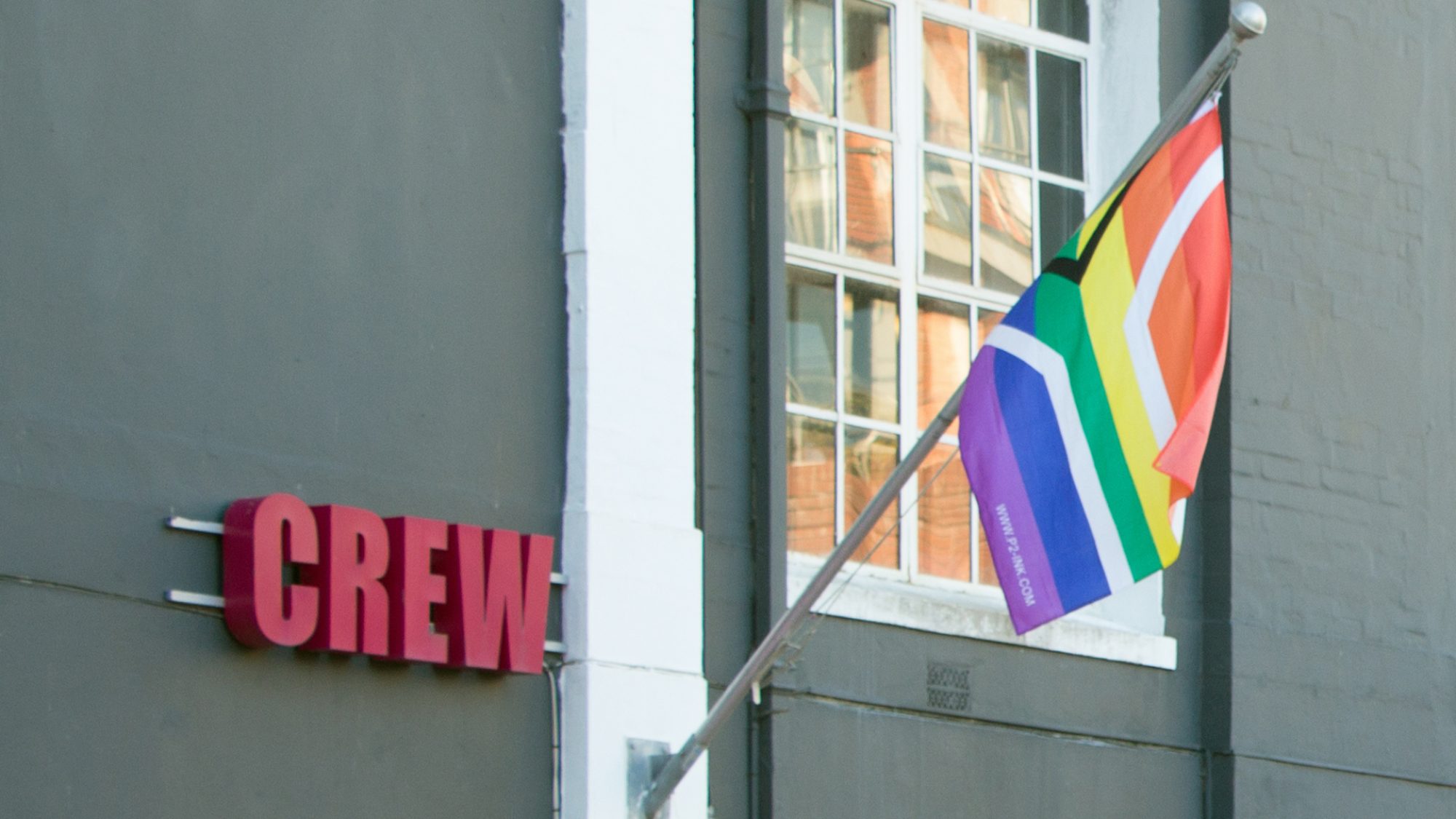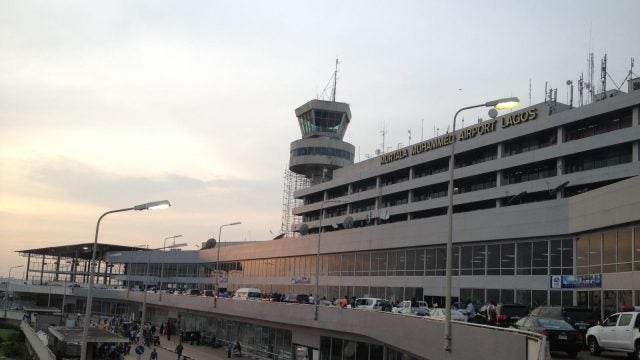
Title: Identifying and Addressing the Impacts of COVID-19 on LGBTQ+ Migrants in South Africa: A Preliminary Look
LGBTQ+ migrants are a particularly vulnerable subgroup of both the migrant and LGBTQ+ populations, especially in South Africa where they experience high levels of stigma and discrimination. This vulnerability may be magnified due to the COVID-19 pandemic, as existing structural conditions will likely intersect with the social, psychological, and economic impacts of the pandemic, potentially leading to unprecedented health and social health inequities for LGBTQ+ migrants. This article reviews the current situation for LGBTQ+ migrants in South Africa and discusses interventions for supporting them through this challenging time.
The novel coronavirus, commonly referred to as COVID-19, has had devastating social and economic impacts around the world. While high-income countries have seen cases skyrocket and a devastating death toll, the pandemic’s effect on low- and middle-income countries remains one of the most serious public health issues of our time. In fact, given the prolonged nature of COVID-19, it is probable that health and social inequities will rise among individuals in these countries. In fact, the United Nations has urged nation states to prioritize the health and well-being of vulnerable populations in low- and middle-income countries during the pandemic, as these individuals stand to be the most affected by its short- and long-term consequences.
For example, South Africa, a country where approximately 50 percent of the population lives in poverty (i.e., 35 million adults over 18) has been hit especially hard, with more than 740,000 confirmed cases and more than 20,000 deaths. since the pandemic began. South Africa in particular has had one of the longest and most stringent lockdowns, leaving its most vulnerable populations even more susceptible to the psychosocial and economic effects of COVID-19. The lockdown has made it virtually impossible for low-wage workers to make a living when there have been deleterious impacts on both the formal and informal sectors of the economy. Further, engaging in recommended social distancing behaviors becomes almost impossible for those residing in crowded townships, where many Black South Africans live.
Within this vulnerable population is an especially marginalized subgroup that warrants immediate attention: migrants who identify as lesbian, gay, bisexual, transgender, queer, or with other diverse sexual orientations and gender identities (LGBTQ+). South Africa has the largest number of migrants in Africa, approximately four million, and although official figures do not exist, it is assumed that significant numbers are LGBTQ+. The reasons that LGBTQ+ people migrate to South Africa are usually multi-determined; however, it has been indicated that South Africa’s constitutional guarantees of nondiscrimination on the basis of gender and sexual orientation attract LGBTQ+ people from at least thirty African countries, many of which criminalize same-sex sexual behavior and expose LGBTQ+ individuals to systematic human rights violations. Additionally, South Africa has been known for its thriving economy, and LGBTQ+ individuals may migrate there for better work opportunities.
From our research and practice in several host countries, we know how hard it is for LGBTQ+ migrants, who hold multiply marginalized identities, to survive and integrate into new societies. First, LGBTQ+ migrants frequently arrive in host countries struggling with depression, anxiety, and stressor-related disorders precipitated by trauma in their countries of origin. Second, unlike most migrants, those who are LGBTQ+ are usually unable to rely on their diaspora communities for support in meeting their basic needs (money, food, clothing, and shelter), as LGBTQ+ migrants may anticipate or experience stigma from these communities due to homophobia and transphobia. Further, LGBTQ+ migrants may experience xenophobia and racism from host community members, including those who are part of the LGBTQ+ mainstream community. The lack of practical and relational support may exacerbate health and mental health issues, leaving LGBTQ+ vulnerable to continued marginalization and victimization. The situation is not helped by the South African asylum system, which can place LGBTQ+ asylum claimants in extremely precarious situations as they wait for an overstretched asylum system to register and adjudicate their cases.
These circumstances have been further compounded for LGBTQ+ migrants since the COVID-19 pandemic hit South Africa. That is, existing structural drivers of health and mental health problems among LGBTQ+ migrants (e.g., food and housing insecurity, employment instability, and lack of access to health care) may intersect with pandemic-related stressors (inability to self-isolate due to living in close quarters, lack of access to masks, gloves, and cleaning products, loss of jobs in service industries, and food and water shortages) to complicate an already difficult struggle for survival. In fact, many LGBTQ+ migrants who were working in restaurants and other service industries have lost their jobs. LGBTQ+ migrants are also trying to manage the pandemic while dealing with ongoing medical conditions, such as HIV, and psychiatric problems, such as depression and traumatic stress. Further, with a steep decline in the travel industry in Cape Town due to COVID-19, many are unable to engage in sex work, which for many is a major source of income. Our research has shown that the more LGBTQ+ migrants struggle to meet basic needs, the more vulnerable they may be to interpersonal violence, including partners and clients who insist on having unprotected sex. Thus, LGBTQ+ migrants are placed at potentially increased risk for both HIV and COVID-19 transmission and acquisition. In such dire circumstances, some LGBTQ+ migrants in South Africa may forgo routine HIV testing and may also have trouble adhering to pre-exposure prophylaxis (PrEP) or their HIV medication regimen. Complicating matters is that LGBTQ+ migrants are frequently ineligible for government support due to their undocumented status and are thus left fending for themselves.
While the current social, structural, psychological, and economic impacts of COVID-19 are enough in and of themselves to suggest an immediate need for health and mental health interventions for LGBTQ+ migrants in South Africa, such interventions were warranted prior to the pandemic.
Here is what needs to be done to help LGBTQ+ migrants in South Africa:
- Establish educational initiatives using a variety of social media that target LGBTQ+ migrants to help link them with COVID-related and other important resources.
- Provide easy access to personal protective equipment in places where LGBTQ+ migrants may likely congregate (e.g., community organizations, youth centers, etc.)
- Increase availability of healthy foods through food pantries and social service organizations.
- Increase access to free internet data (hotspots) in order for individuals to remain virtually connected to each other and continue to receive updates for potential resources.
- Distribute governmental funds to keep health and social services programming going even as resources are stretched.
- Streamline asylum processes so claimants may present their cases in a timely fashion, including opportunities for virtual hearings.
- Offer access to virtual peer-support and self-help groups as well as formal mental health services, where indicated.
- Integrate health and mental health services to address COVID-19 to address sexual health issues and increase access to HIV testing, treatment, and PrEP.
Such interventions are more important than ever for reducing health inequities among SGM migrants, as these inequities are only likely to worsen in low- and income-countries, such as South Africa, where structural and psychosocial barriers are likely compounded due to COVID-19.
. . .
Edward J. Alessi is Associate Professor and Chancellor’s Scholar of LGBTQ Mental Health, Trauma, and Resilience at Rutgers University. His current projects examine how traumatic stress among sexual and gender minority (SGM) migrants (immigrants, refugees, and asylum seekers) intersects with psychosocial and structural issues in host countries to impact health and mental health outcomes. He is focused on developing community-based interventions to buffer the negative effects of integration-related stressors on SGM migrants’ health and mental health.
Sarilee Kahn, Adjunct Professor at McGill University’s School of Social Work, is a researcher, writer, and consultant whose work focuses on experiences of trauma and resilience for individuals and communities holding intersecting marginalized identities. Published in numerous peer-reviewed journals and edited books, she has consulted with federal and provincial government public health authorities in Canada on the psychosocial needs of sexual and gender minority migrants. Other consulting clients have included Doctors Without Borders, the United Nations, and the International Rescue Committee.
Victor Pilirani Chikalogwe is a gender and LGBTQ rights activist from Malawi currently working as Director with PASSOP. He is the founding member of CEDEP, the only queer organisation in Malawi. He is a steering committee member of the Hate Crime Working Group in South Africa and a board member of five NGOs.
Image Credit: HelenOnline, CC BY-SA 3.0, via Wikimedia Commons
Recommended Articles

Africa accounts for approximately two percent of global air travel. Given the continent’s vast size and large distances between major trade hubs, enhancing intra-African air connectivity will be…

An estimated 7.9 million Venezuelans migrated abroad for the long term under President Nicolás Maduro’s rule as Venezuela’s political, economic, and social crises have deepened. Alongside rising Venezuelan migration, migrants…

Amid stalled U.S. federal climate engagement and intensifying transatlantic climate risks, subnational diplomacy has emerged as a resilient avenue for cooperation. This article proposes a Transatlantic Subnational Resilience Framework (TSRF)…